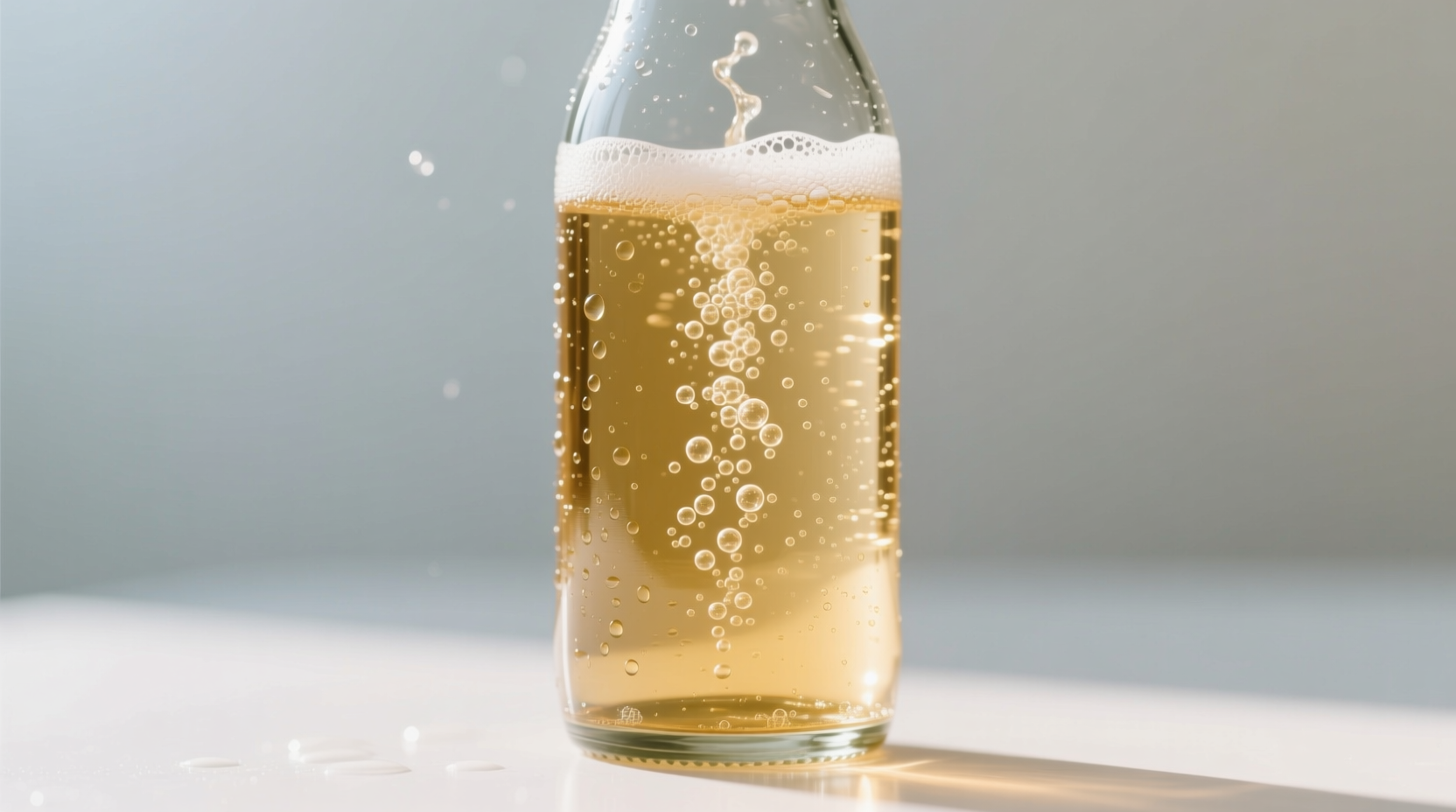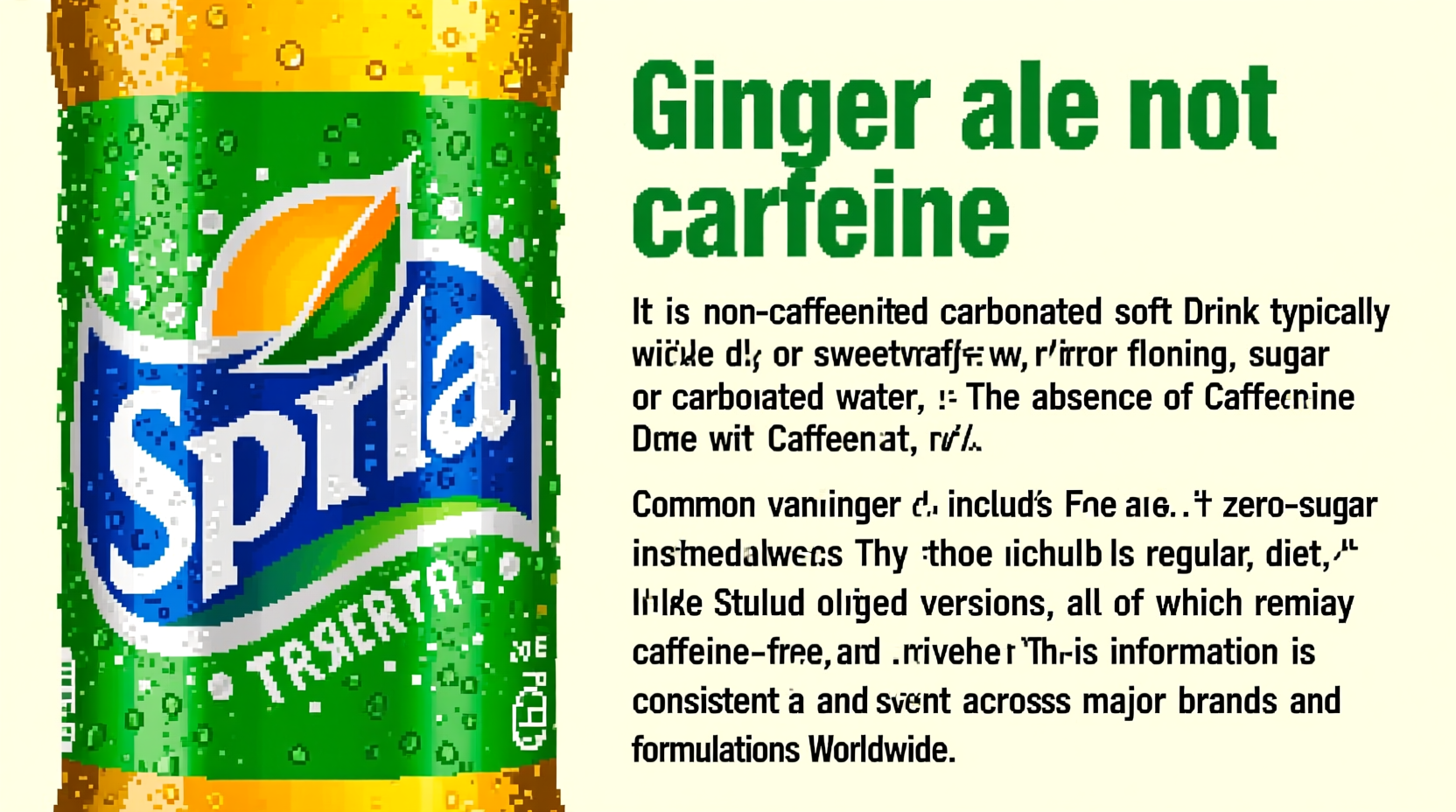Understanding whether your favorite beverages contain caffeine is crucial for managing dietary restrictions, medication interactions, or simply making informed lifestyle choices. For the millions of people who avoid caffeine due to sensitivity, pregnancy, or personal preference, knowing exactly what's in your ginger ale matters.
Why People Ask About Caffeine in Ginger Ale
Many consumers assume all sodas contain caffeine because popular colas do. When reaching for ginger ale as a potential alternative, they want confirmation it's truly caffeine-free. This question often comes from:
- Parents selecting beverages for children
- Individuals with caffeine sensitivity or medical restrictions
- People seeking non-caffeinated options for evening consumption
- Those comparing ginger beverages for health-conscious choices
Ginger Ale Ingredients Breakdown
Traditional ginger ale consists primarily of carbonated water, high fructose corn syrup (or sugar), ginger root extract, citric acid, and natural flavors. Unlike colas that use kola nut extract (a natural source of caffeine), ginger ale formulations don't include any caffeine-containing ingredients.
The U.S. Food and Drug Administration (FDA) requires clear labeling of caffeine content when it's added to beverages. According to FDA labeling guidelines, any added caffeine must appear in the ingredients list.
Ginger Beverage Caffeine Comparison
| Beverage Type | Typical Caffeine Content | Notes |
|---|---|---|
| Traditional Ginger Ale | 0 mg | Canada Dry, Schweppes, Seagram's standard varieties |
| Diet Ginger Ale | 0 mg | Most diet versions maintain caffeine-free status |
| Ginger Beer | 0 mg (typically) | Most craft varieties are caffeine-free, but check labels |
| Cola Beverages | 30-45 mg | Standard 12oz serving contains significant caffeine |
| "Spiced" Ginger Sodas | Check label | Some specialty varieties may combine with other ingredients |
Ginger Ale Formulation Timeline
Ginger ale's formulation has remained remarkably consistent regarding caffeine content:
- 1850s: Original ginger ale developed in Ireland and Canada - naturally caffeine-free
- Early 1900s: Commercial production begins in North America - maintains caffeine-free status
- 1950s: Diet versions introduced - continue caffeine-free tradition
- 2000s: Craft ginger beer resurgence - most remain caffeine-free
- Present Day: FDA requires clear labeling of any added caffeine
When Ginger Ale Might Contain Caffeine
While traditional ginger ale is caffeine-free, certain specialty products might contain caffeine:
- Hybrid Beverages: Some newer "ginger colas" or blended sodas may combine ginger with caffeine-containing ingredients
- Energy Ginger Drinks: Specialty products marketed as energy drinks with ginger flavoring
- Craft Variations: Small-batch producers might create unique formulations with added caffeine
- Medicinal Ginger Products: Some ginger-based digestive aids or supplements may contain caffeine
The USDA FoodData Central database confirms that standard ginger ale contains 0 mg of caffeine per 12 fl oz serving. Always check the ingredient list for "caffeine" or "contains caffeine" statements, particularly with newer or specialty products.
How to Verify Caffeine Content Yourself
Don't rely solely on marketing claims when avoiding caffeine. Here's how to verify:
- Read the ingredients list - Look specifically for "caffeine"
- Check nutrition facts - Some labels now include caffeine content
- Visit manufacturer websites - Most provide detailed product information
- Contact customer service - Brands typically respond to ingredient inquiries
- Use reliable databases - USDA FoodData Central has verified information
For those particularly sensitive to caffeine, remember that some "natural flavors" could theoretically include caffeine sources, though this is extremely rare in standard ginger ale products.
Practical Tips for Caffeine-Sensitive Consumers
If you're avoiding caffeine for medical or personal reasons, consider these practical strategies:
- Stick with major national brands that have consistent formulations
- Choose products labeled "caffeine-free" for absolute certainty
- When dining out, ask specifically if their ginger ale contains caffeine
- Keep a reference list of verified caffeine-free ginger ale brands
- Consider craft ginger beers only after verifying their ingredients
Many hospitals and healthcare facilities specifically stock caffeine-free ginger ale for patients with dietary restrictions, confirming its standard formulation doesn't include caffeine.

Why Ginger Ale Remains a Popular Caffeine-Free Choice
Ginger ale's enduring popularity as a caffeine-free option stems from several factors:
- Natural ginger flavor without artificial aftertastes
- Effective remedy for nausea and digestive discomfort
- Versatile mixer that doesn't overpower other flavors
- Widely available in grocery stores and restaurants
- Familiar taste profile across generations
Unlike many specialty sodas that have come and gone, ginger ale has maintained its simple, caffeine-free formulation while remaining a staple beverage choice worldwide.











 浙公网安备
33010002000092号
浙公网安备
33010002000092号 浙B2-20120091-4
浙B2-20120091-4